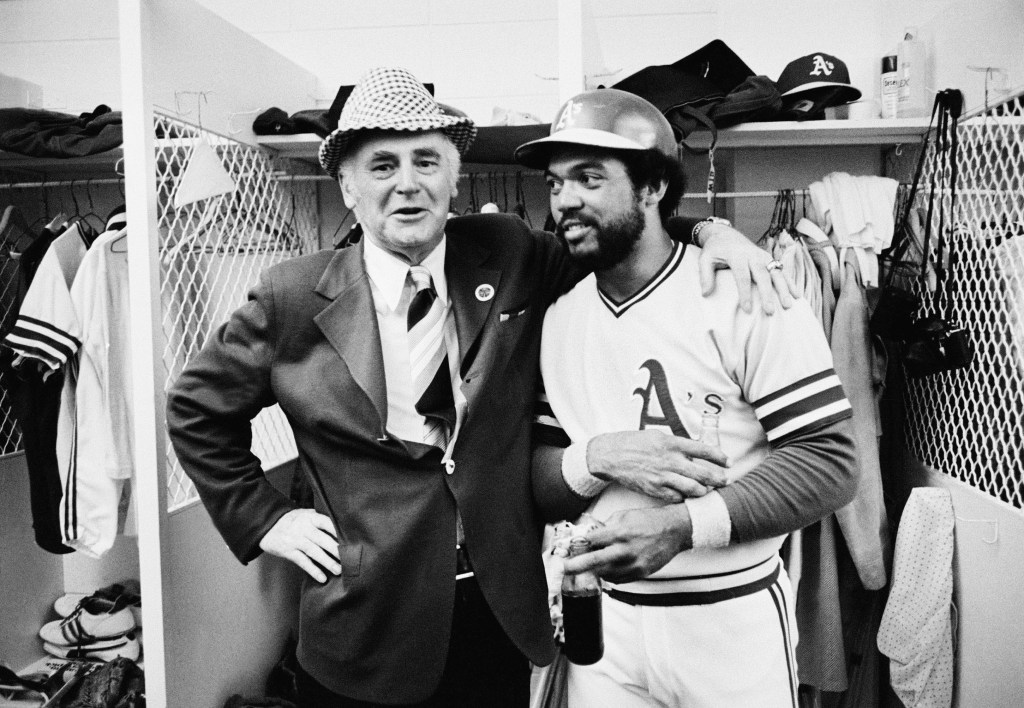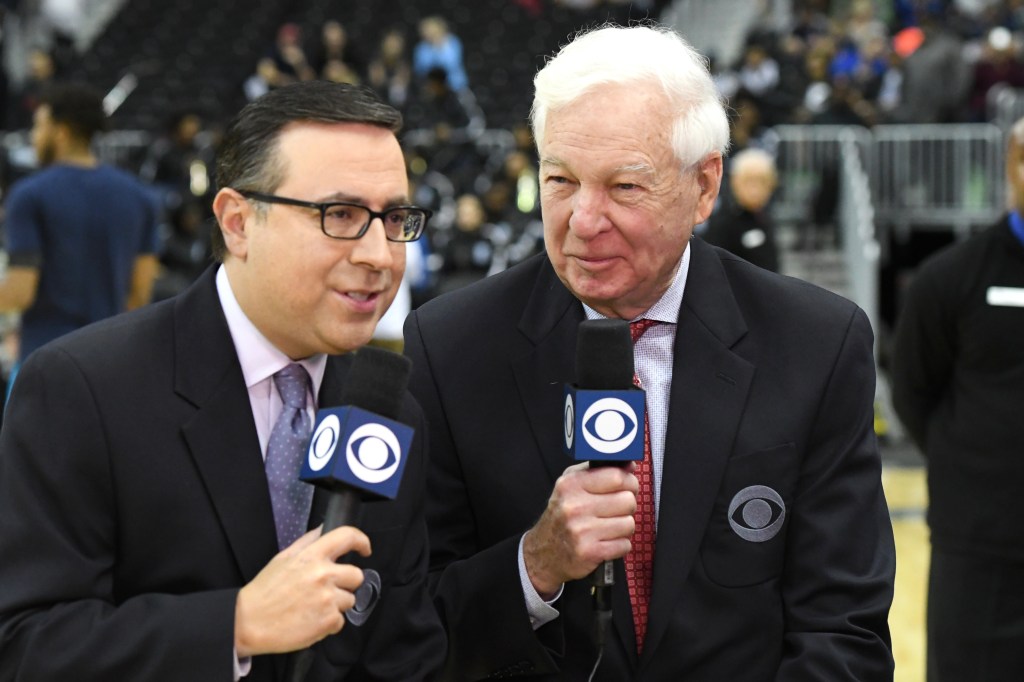Charlie Finley was a lot of things to a lot of people during his 20-year run as a baseball in owner. In Kansas City, he became a civic hero in 1964 because he wrote a personal check for $150,000 to bring the Beatles, at the very peak of Beatlemania, to town; he quickly became one of that town’s most reviled citizens by annually flirting to move his Athletics out of town, ultimately succeeding in 1968.
In Oakland, under his watch, the A’s assembled one of the two or three greatest dynasties in the sport’s history, winning three straight titles from 1972-74. He then blew up that glorious team, bit by bit.
He could be generous with players, offering $300 to anyone who’d grow a mustache, and so those 1970s A’s team pictures look like they might’ve fit in well in the 1870s. But he was notoriously cheap and most of his players grew to loathe him, notoriously trying to “fire” a player named Mike Andrews in the 1973 World Series for committing a costly error.
It was Jim Hunter — Finley is the one who named him “Catfish” — who summed up his old boss the way most of his associates would.
“Charlie,” Cat said in 1979, “was just a pain in the ass.”
But Charlie had his ideas. Inspired by the DH, Finley invented the “designated runner,” and so in 1974 and ’75 Herb Washington played in 105 games with the A’s and never took an at-bat, though he did steal 29 bases. He pitched the idea of different-color baseballs. He clad his team in uniforms you could see from the International Space Station.
And he very nearly became the one owner who nearly outsmarted Marvin Miller, the otherwise undefeated chief of the players’ union. And it is for this that we bring up Finley this morning, even if is in relation to an entirely different sport — college basketball.
Miller scored his greatest victory on Dec. 23, 1975, when arbiter Peter Seitz ruled that free agency would be the law of the baseball land. The problem was how to enact. Miller’s plan — which still holds today — was that a team retained rights through renewal and arbitration for a player’s first six years, then the player was free to do what he wanted.
Finley hated the idea, knowing that he’d devote untold resources to making a player good enough to be poached. But instead of quietly griping about the decision, Finley went another way.
“Make ’em all free agents!” he declared, suggesting that the game take the idea of free agency literally, insist everyone work on one-year contracts that would allow players to move after every year if they liked.
Finley’s fellow owners were too arrogant to understand the genius of Finley’ plan, but Miller sure wasn’t. He knew yearly chaos would yield some short-term gains for the some players but be so terrible for the game it might ultimately force revolution.
As he later told author John Helyar in the book “Lords of the Realm”: “My main worry was that somebody would listen to him. It would have been an impossible box. You could not have said you were opposed to freedom.”
So Finley’s plan died, Miller’s endures, and it brings us to college basketball, where this week the number of players in the transfer portal topped 1,000 and kept climbing. And those who care about the sport and also have a conscience know what Miller was feeling: You cannot be opposed to freedom. And after decades of playing for free, college athletes, most definitely, no longer have that problem.
But the glut of players year after year has brought what Miller always feared. It benefits some, usually the best players and the best teams. It isn’t at all healthy for the whole of the game, or for players left without a team when the music stops. Miller knew annual baseball free agency would be unsustainable; it sure feels like a policy of unlimited visits to the transfer portal are, too.
Somewhere between indentured servitude and total freedom lies the answer. College sports could use someone like Marvin Miller to spare it from what has become Charlie Finley’s wildest dream come true and find that safe place.
Vac’s whacks
I’ve always said that when there’s a difficult and important job to do there’s a Chaminade man ready to get it done. And so Michael O’Connell will not only run the point and help N.C. State keep this amazing run going Sunday, he’ll also be there to spare us from Duke sneaking into the Final Four.
The folks at Strat-O-Matic pegged the Braves to beat the Astros in the 2024 World Series, in five games. Good news for the Yankees, picked to go 99-63 and win the AL East, and for Aaron Judge, projected to hit 48 homers and drive in 113. Less so for the Mets (78-84, third in the NL East).
With all the folks who’ll celebrate Dwight Gooden’s number retirement April 14, Doc will also remember one who isn’t there: Mel Stottlemyre, his pitching coach with the Mets and the Yankees. “Mel meant everything to me,” he says. “He cared about me as person. He was there in the good and bad times. I owe my career to him.”
I acknowledge that Lincoln-conspiracy buffs like myself can sometimes have kind of a Trekkie vibe about us. Nevertheless I think you’ll enjoy “Manhunt” on Apple TV every bit as much as I have.
Whack back at Vac
Neil Ptashnik: Lifelong Jets fan and I’m 61. The QB and offensive linemen are older than me in football years. Why does the team keep putting lipstick on a pig?
Vac: I’m starting to think you might have a hard time slipping a piece of loose-leaf paper through the Jets’ “window of opportunity.”
Henry Conte: Nice call on Ian Eagle and Bill Raftery. Now if they can bring in Jim Spanarkel as a third it will be basketball graduate studies.
Vac: Where can I sign up for that?
@aghease: Games like the Mets’ opener make me extra grateful for the pitch clock.
@MikeVacc: They got you home by Happy Hour!
Robert Feuerstein: The emergence of the LIV tour and the disappearance of Jordan Spieth and Rory McIlroy have made golf almost unwatchable. Thank you Scottie Scheffler for providing some reason to watch.
Vac: Tiger Woods was so relentlessly and reliably good for so long it was easy to forget how rare it is for even the best players to be counted on to be at their best week to week.












